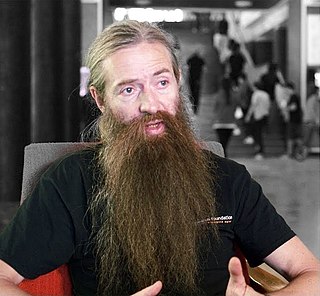A Quote by John Glenn
The conquest of space is not merely a technological project of interest to a handful of select scientists and specialists, valuable though that research and information may be.
Related Quotes
Space and force pervade language. Many cognitive scientists (including me) have concluded from their research on language that a handful of concepts about places, paths, motions, agency, and causation underlie the literal or figurative meanings of tens of thousands of words and constructions, not only in English but in every other language that has been studied.
I would ask, "How can one have a technological society without research? How can one have research without researching dangerous areas? How can one research dangerous areas without uncovering dangerous information? How can you uncover dangerous information without it falling into the hands of insane people who will sooner or later destroy the human race, if not the whole of life on earth?" Who knows? God only knows!
In the late 60s, 70s and possibly early 80s, social scientists were interested in researching the diffusion of innovation and studying the link between applied research and policy and program development. Recently there has been less interest in these issues and we feel that this interest must be rekindled.
Exploration, of course, is going to new places, but I don't think we go to new places just solely to say: "Well, we've been there," and come back, interesting though it may be. To me, each time we go farther into space we should use that to do basic research - basic research that can't be done before you go there.
The partisanship surrounding space exploration and the retrenching of U.S. space policy are part of a more general trend: the decline of science in the United States. As its interest in science wanes, the country loses ground to the rest of the industrialized world in every measure of technological proficiency.
If war can indeed be turned into a relic, then the virtue of greed will recede further. From a given society's standpoint, one big upside of wanton material acquisition has traditionally been the way it drives technological progress-which, after all, helps keep societies strong. In the nineteenth century, Russia ans Germany had little choice about modernizing; in those days stasis invited conquest. But if societies no longer face conquest, breakneck technological advance is an offer they can refuse, and frugality a luxury people can afford.
You have choice. You can select joy over despair. You can select happiness over tears. You can select action over apathy. You can select growth over stagnation. You can select you. And you can select life. And it's time that people tell you you're not at the mercy of forces greater than yourself. You are, indeed, the greatest force for you.

































